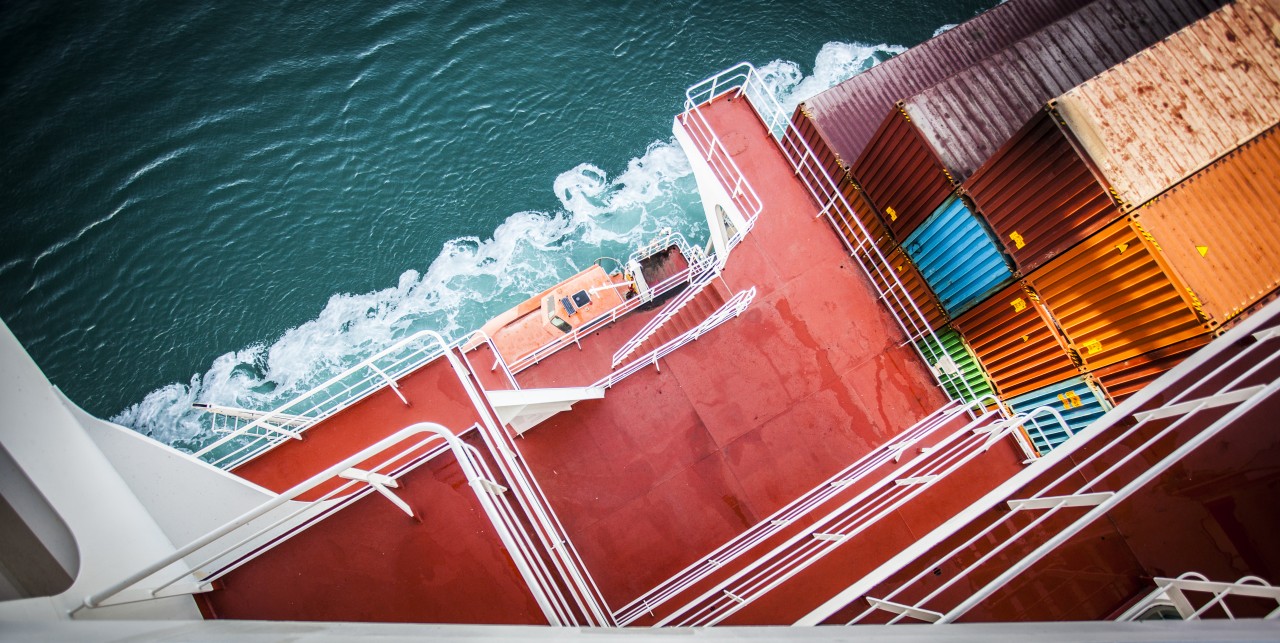Political risk examples
From sanctions to exchange controls and terrorism to civil forfeiture, doing business across international borders comes with a whole new set of risks. However, when these risks are properly managed, firms can take advantage of a new world of opportunities.
Import/Export issues
In today’s globalized economy, competition between countries and alliances can be intense. Sometimes, businesses become caught in the political crossfire.
This is especially true for businesses that rely on imports, export and reexports as part of their core operations. If sanctions or other restrictive measures are imposed on these activities, key supply chains may be disrupted and saleable goods may lose value. In the most extreme cases, entire enterprises can grind to a halt. A comprehensive insurance policy can help firms manage the inherent risks of international trade.
Restriction on currency exchange or transfer
International monetary policy can have a direct impact on US businesses.
Many countries with developing or transitional economies use foreign exchange controls in an attempt to limit speculation against their currencies. These countries are known as “Article 14” countries and include major global players like China, India and South Africa.
In certain circumstances, exchange controls can prevent firms from remitting proceeds from overseas operations back to the US. That can impede cash flow and threaten profitability. Political risk insurance can enable affected companies to restore shareholder dividends, loan payments and other essential payables.
Political unrest and forced exit
From mineral resources to human talent, there are numerous reasons that US businesses may expand into developing markets. However, high-growth opportunities often come with higher risks of political conflict, instability and violence.
Because these threats are npredictable and complex, standalone insurance policies may not address all the ways that operations could be affected. For example, a commercial terrorism rider might cover damaged assets, but it might not cover loss of income if the business must abandon those assets in the midst of danger. Political risk insurance is designed to provide a broader scope of protection for US companies operating in emerging markets.
Expropriation & discrimination
At times, foreign governments may act to seize the assets of US companies operating within its borders. This is known as direct expropriation and is generally allowed under international law if the seizure is for public benefit and the firm is fairly compensated. But sometimes, the compensation isn’t fair – or it isn’t provided at all.
In other cases, businesses can face indirect expropriation (a.k.a. regulatory taking), where they retain the title to their assets but are deprived of the revenues they generate. The right insurance policy can help US firms to mitigate against both types of expropriation.
How political risk can affect your business
“What has changed in the 25 years since I started in this business is that we are living in a more connected world today,” says Pierre. On the upside, that means business is easier to conduct on a global scale. Almost everybody now has the ability to reach out to emerging countries or to conclude a contract and secure a sale in a foreign country.
On the downside, this means that when something goes wrong in one part of the world, you can feel the impact halfway around the globe – directly, if you are dealing with the country in question, or indirectly because of your diverse supply chain. Remember when the 20,000-ton container ship “Ever Given” got stuck in the Suez Canal in March 2021, shutting down international trade for a week?
Another good example is when your own government decides to ban sending people on the ground to the country where you are executing your contract. “You would have to stop the performance of your contract,” says Pierre, “and you would be exposed to additional expenses and not be able to keep on performing or to keep invoicing and receiving payment from the customer in that specific country. This ban would clearly translate into a loss for the contractor.”
As a last illustration, let’s take a change of law or regulation that is super-selective and targets only foreign companies. “That could be seen as a soft discriminatory measure and could be covered as a political risk,” says Pierre. “But only if it’s a discriminatory measure. Any governmental decision that would impact all the companies located in a country is not captured by a political risk insurance policy. These are risks that all business owners are facing when running a business.”
Political risk management is essential in these situations in order to assess the risks and define actions to protect your company.
Political risk management
Some risks may be worth taking for exposure to new markets at opportune moments. But it is always important to keep your eyes and ears open because political risks in international business aren't always well-identified. Sometimes the risks may be just rumors – events that one could deem as not material with little or no substance behind them.
Some of the early signs of political risk are political, economic, and social instability:
- The political situation in the country: how is the country behaving with its neighbors? You want to be prepared if there’s an escalation of tensions or a war.
- The economic conditions: what are the macroeconomic imbalances? How stable is the economy? What is the ability of the country to honor its payment obligations or debt over the period of your project?
- The social conditions: is youth unemployment or underemployment high (think: Arab Spring, Sudan, Algeria etc.)? Are social tensions erupting into violence? Riots can also impact trade transactions or the performance of commercial contracts. For example, there is a strong correlation in countries whose economies are heavily dependent on natural resources. “You know that in these countries if the price goes below a certain threshold, there are going to be fewer resources to finance social programs and that can lead to some social instability or even the inability to honor debt obligations,” Pierre points out.
What is political risk insurance?
Political risk insurance (PRI) is a type of specialized coverage designed to help protect businesses that operate globally from financial losses incurred as a result of political changes or governmental instability. The policy typically covers a range of potential risks that could disrupt normal business operations and adversely affect a company’s financial condition, including war, civil unrest or changes in economic policies, such as currency devaluation.
How does political risk insurance work?
PRI policies are typically customized to cover a specific project or activity over a predetermined duration. The policy is intended to protect businesses from financial losses resulting from events that occur during the policy period (not events that have already taken place). Depending on the length of the project, the PRI policy may apply for one month or several years. Since there is no “standard” PRI policy, it’s important for policyholders to review all sections of the contract thoroughly, including the conditions, definitions, and exclusions.
As the world leader in trade credit insurance, Allianz Trade offers affordable PRI coverage to help clients around the world manage their current risks and protect their future cash flow.
What Does Political Risk Insurance cover?
- Expropriation, Confiscation, or Nationalization: PRI can help prevent loss caused by government action that involves seizing private property for public use, with or without compensation to the property owners, or assuming ownership of private assets or industry.
- Inconvertible Currency: PRI is designed to help protect businesses when foreign governments declare the country’s domestic currency as inconvertible, meaning it can't be exchanged for any other legal currency or transferred out of the country.
- Trade Embargoes: PRI provides protection for importers and exporters should a government impose an embargo barring the import or export of certain goods into or out of the country, or prohibit trade with a specific country.
- Political Violence: PRI helps offset the risk of political instability that can result in strikes, riots, civil commotion, war, insurrection, terrorism and other violent acts committed by a government or individuals for political purposes.
- Breach of Contract: PRI responds when a government fails to fulfill the terms of a contract, rescinds the contract, forces a business to renegotiate its terms or refuses to pay damages awarded during arbitration.
- Failure of Sovereign Financial Obligations: PRI helps businesses manage should a foreign government fail to pay its debt or honor its unconditional financial payment obligations.
Do you need political risk insurance?
Political risk insurance is not a “mandatory” insurance product. It is a niche market, originally used by large exporters, international contractors, or banks facing the risk of contract interruption, or the risk of non-payment or non-repayment of a loan. However, political risk is no longer the exclusive domain of emerging countries. It can directly impact all US businesses due to the increased interconnection of economies. Political risk insurance, targeted to your specific engagements by an insurer with a global reach, can secure your economic and business interests.
“For companies, political risk insurance can cover, for example, non-payment of a cargo or the non-performance of a contract,” explains Pierre. “When it comes to banks, we cover their full spectrum of transactions from export finance to trade finance, to infrastructure finance, asset-based finance, and structure-trade finance. So, it’s a highly customized solution.”
What about recovery? “The destruction of an asset… there’s no recovery potential for that,” says Pierre, “but if you insure against non-payment or non-reimbursement by a state or local government entity, you have the ability to make a claim against the government and get recoveries.” Or the debt may be rescheduled.
Trade Credit insurance and political risk insurance: what’s the difference?
Trade credit and political risk insurance (or structured trade credit insurance) are not mutually exclusive; they are compatible. Trade credit insurance covers risks to your company’s short-term portfolio of receivables. Structured trade credit or political risk insurance covers a specific transaction, with risk horizons that can vary from very short-term risks to long-term ones. Trade credit and political risk insurance, therefore, go hand-in-hand to secure your business transactions.
“We design the political risk insurance policy transaction by transaction, for a specific loan for a specific contract,” explains Pierre. “Discuss with your insurer or specialized broker and check where you are really exposed and whether there is a need for political risk cover.”
As a conclusion, Pierre reflects on his 25 years in risk management and points out: “You can have a very strong transaction in a very complicated and sensitive country, but you could also have a very bad transaction – if it’s not well structured – in a developed country. I’ve seen lots of transactions performing very well in emerging economies, and conversely claims that have been made on supposedly strong counterparties."


